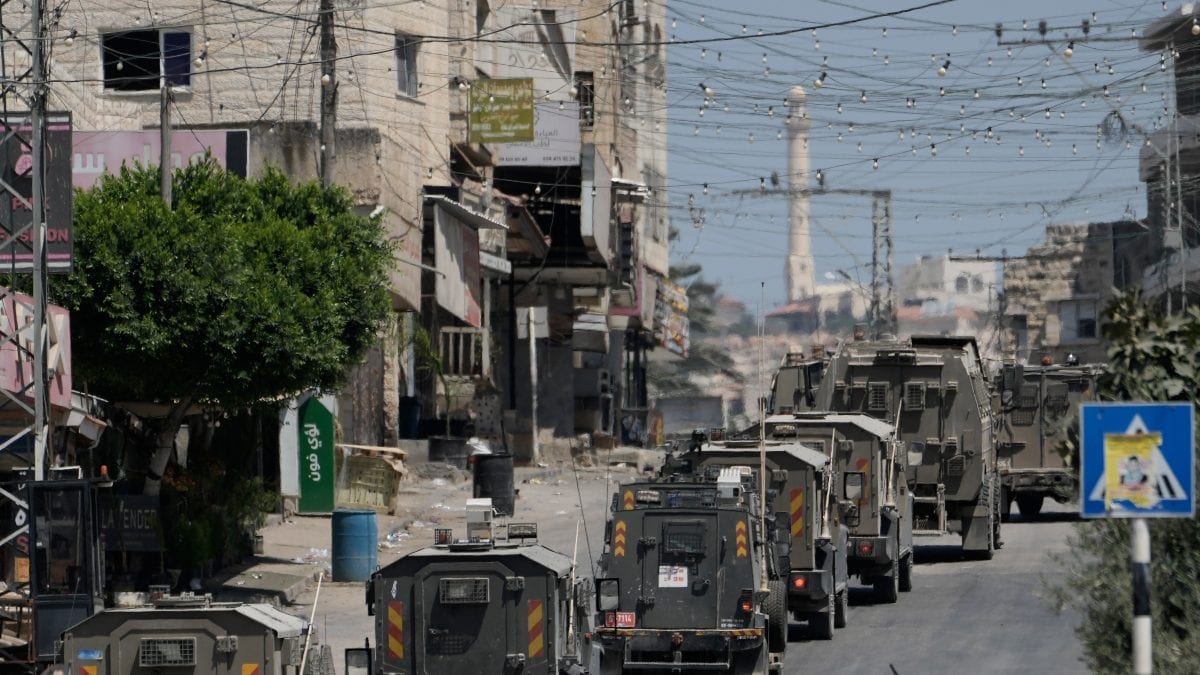The recent violence at the Allenby Bridge Crossing between the West Bank and Jordan highlights the ongoing conflict between Israel and Palestinians. This event, which resulted in the deaths of three Israeli civilians, is a stark reminder of the volatility of the situation and the deep-seated tensions that continue to fuel the conflict.
The Allenby Bridge Shooting and its Aftermath
On Sunday, a gunman approached the Allenby Bridge Crossing from the Jordanian side in a truck and opened fire at Israeli security forces. The assailant was killed in a shootout, and three Israeli civilians were confirmed dead. The incident has sent shockwaves through both Israel and Jordan, prompting immediate reactions and raising concerns about the future of the region.
A Blow to Regional Security
The shooting at Allenby Bridge, a key crossing point for people traveling between Israel, Jordan, and the Palestinian territories, poses a serious threat to regional security. The crossing, which serves as a vital artery for trade and travel, has become a symbol of the fragile peace that exists between Israel and its neighbors. This attack not only undermines the peace process but also jeopardizes the flow of people and goods through the region, potentially disrupting economies and further escalating tensions.
International Condemnation and Calls for De-escalation
The international community has condemned the attack, with many countries calling for an immediate cessation of violence and a return to dialogue. The incident has further amplified the urgent need for a resolution to the Israeli-Palestinian conflict. Leaders across the globe have urged all parties involved to engage in constructive dialogue and seek a peaceful and lasting solution to the conflict.
The Ongoing Israeli-Palestinian Conflict: A Complex Web of Violence and Disputes
The Allenby Bridge shooting is not an isolated incident, but rather another tragic manifestation of the long-standing and multifaceted Israeli-Palestinian conflict. The roots of the conflict lie in a complex web of historical, political, and religious disputes, which have led to decades of violence, displacement, and instability.
Historical Background
The conflict’s history dates back to the early 20th century, with the rise of Zionism, a movement that sought to establish a Jewish state in Palestine. The influx of Jewish immigrants to Palestine, combined with the growing Palestinian population, created increasing tensions over land ownership and political control. The establishment of Israel in 1948, following the First Arab-Israeli War, led to the displacement of hundreds of thousands of Palestinians and the subsequent outbreak of further conflicts.
Political and Territorial Disputes
The heart of the conflict revolves around conflicting claims to land and sovereignty. Palestinians, who constitute the majority of the population in the West Bank and Gaza, seek self-determination and an independent state in territories they consider their own. Israelis, however, maintain their right to the land based on historical, religious, and nationalistic arguments.
Social and Economic Tensions
The conflict has had a devastating impact on both Israelis and Palestinians. It has resulted in widespread displacement, poverty, and social unrest. Moreover, the continued occupation of the West Bank and the Gaza blockade have imposed severe restrictions on Palestinian life, hampering their ability to build a viable economy and secure a better future.
A Cycle of Violence and Retaliation
The violence in Gaza and the West Bank has intensified since Hamas’ attack on Israel in October 2022, escalating tensions and pushing both sides deeper into a vicious cycle of violence and retaliation.
Israeli Military Operations and Palestinian Resistance
The Israeli military has launched near-daily raids in the West Bank, carrying out arrest operations and targeting Palestinian militant groups. These actions have resulted in civilian casualties and increased anger and resentment among Palestinians. In response, Palestinian militant groups have carried out attacks against Israeli civilians and security forces, fuelling the cycle of violence and making any possibility of peace seem distant.
Settler Violence
Further complicating the situation is the ongoing presence of Israeli settlements in the West Bank. The expansion of settlements, which are considered illegal under international law, is viewed by Palestinians as an act of land theft and further entrenches the occupation. Settler violence against Palestinians is also a contributing factor to the escalation of the conflict, adding to the existing tensions and creating a climate of fear and insecurity.
The Road to Peace: A Long and Difficult Path
Despite the ongoing violence and the complexity of the issues involved, the pursuit of peace remains essential. The international community and leaders from both sides must continue to work towards a sustainable solution that addresses the concerns of both Israelis and Palestinians.
The Importance of Dialogue and Negotiation
The only viable path to peace is through meaningful dialogue and negotiation. This means fostering trust between the parties, addressing the underlying issues that drive the conflict, and finding compromises that meet the legitimate aspirations of both Israelis and Palestinians.
The Role of International Pressure and Support
The international community has a crucial role to play in supporting the peace process. Through diplomacy, economic sanctions, and moral pressure, countries can influence the actions of both sides and encourage them to seek a negotiated solution.
Take Away Points
- The conflict in Israel and Palestine is a deeply complex and multifaceted issue, rooted in historical, political, and social disputes.
- The ongoing violence, including the recent incident at the Allenby Bridge Crossing, underscores the fragility of the peace process and the need for a peaceful resolution.
- The only path to a lasting solution is through dialogue and negotiation, with both sides demonstrating genuine willingness to compromise and find a solution that meets the needs of both Israelis and Palestinians.
- International pressure and support are crucial to facilitate peace negotiations and ensure the protection of civilian populations.
- The pursuit of peace is an ongoing challenge, but one that must be pursued with unwavering commitment. The lives of millions are at stake, and only through peaceful dialogue and cooperation can a lasting solution be found.




